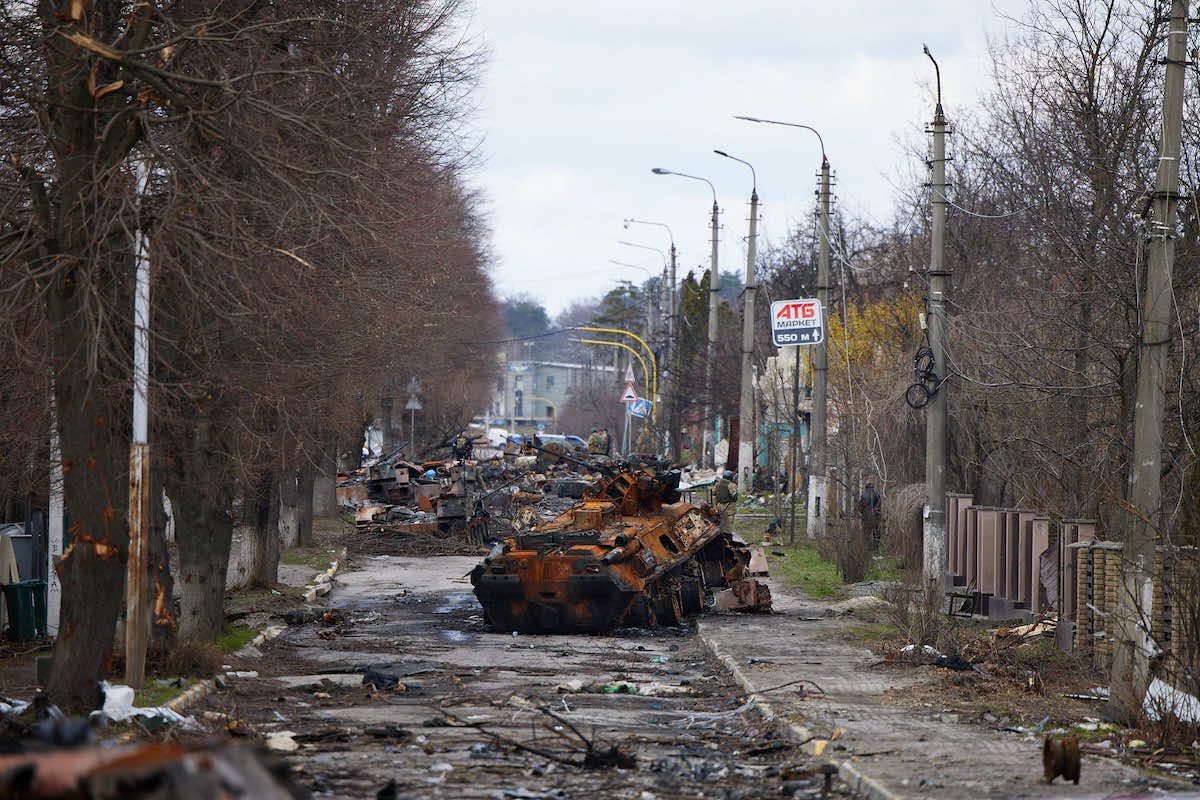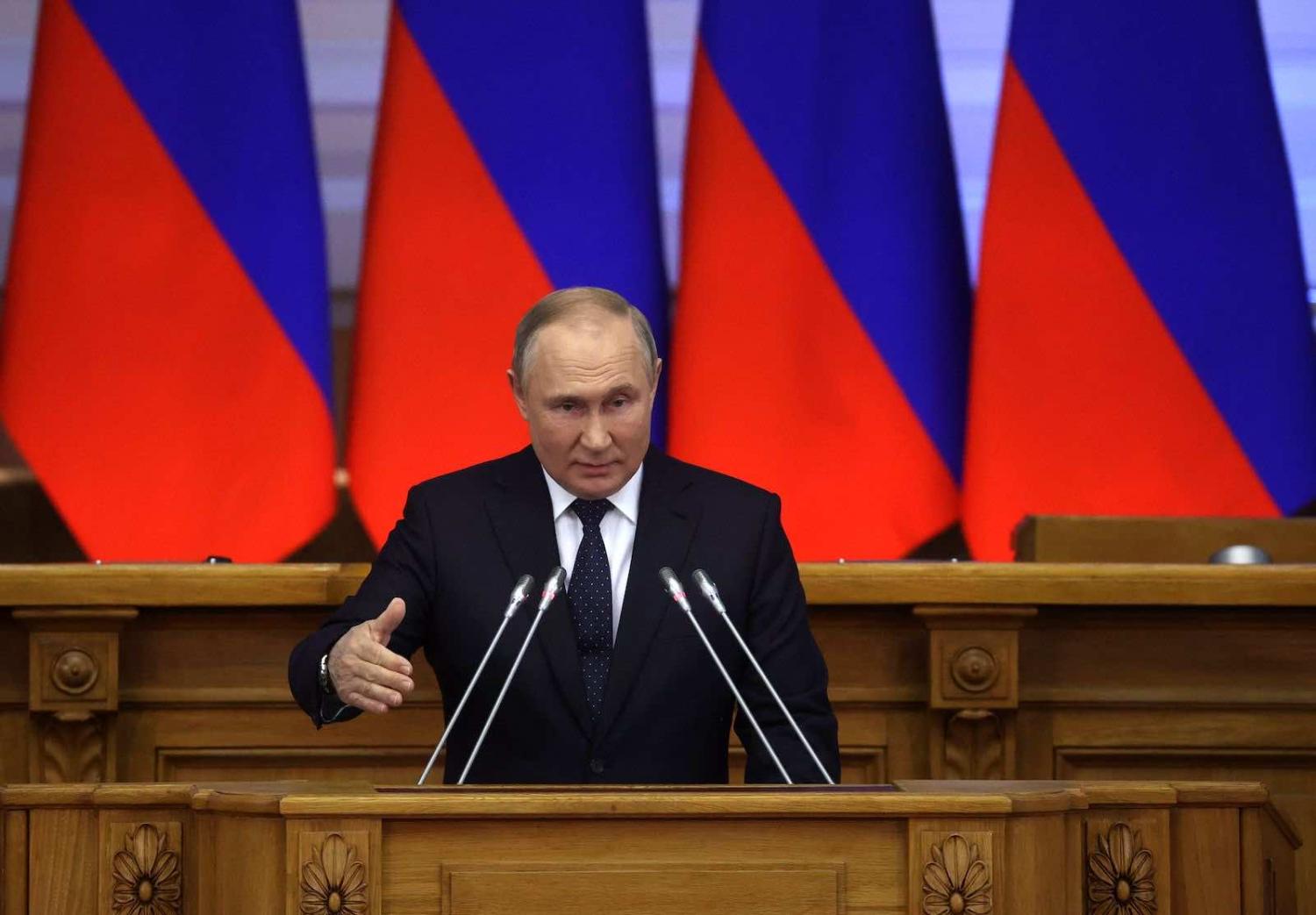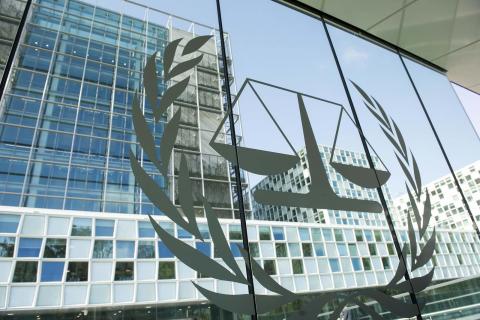Stories of children finding the bullet-ridden bodies of their parents, repeated rapes, and airstrikes have revealed the horrors of Russia’s invasion to the world. In the two months since forces rolled into Ukraine in February, satellite images have shown bodies lining the streets of Bucha, while the discovery of mass graves near Kyiv and Mariupol have rightly shocked the international conscience. The US president has warned of genocide, while Russian President Vladimir Putin has scoffed that “the United States is ready to fight with Russia until the last Ukrainian – that is the way it is.”
In response, much of the world has rallied in calls for accountability for Russian war crimes. Measures include assisting investigations by Ukraine’s government, calling for Putin to face trial for war crimes and suspending Russia from the United Nations Human Rights Council.
Particularly unprecedented is the international support extended to the International Criminal Court’s (ICC) investigation in Ukraine.
It is critical to ask why this international support is exceptional, and has not been as forthcoming in the face of similar violations of international law elsewhere?
However, given the absence of international support to ICC investigations elsewhere, this selective support for its Ukraine investigation fails to strengthen the norm of international justice and accountability. When justice is not accessible to all victims of war crimes everywhere, and instead is contingent upon the political considerations of powerful external states, it mutates and weakens the norms of justice and accountability.
International support for the ICC’s Ukraine investigation
On 28 February, four days after Russia’s invasion, ICC Chief Prosecutor Karim Khan announced his intention to launch an investigation into war crimes committed in Ukraine. Since then, at least 43 states have referred the situation in Ukraine to the Office of the Prosecutor (OTP) – an unprecedented show of international support for the ICC’s investigation. Based on these referrals, the OTP opened its investigation on 2 March. Multiple states have also provided additional funds and loaned legal personnel in support.
US officials also extended rhetorical support. A group of US senators co-sponsored a resolution encouraging an ICC investigation in Ukraine. Furthermore, Foreign Policy reported that days after Khan announced the opening of his investigation, the Biden administration began an internal review of its ICC policy to examine if its rhetorical support can be transformed into material backing.

Double standards of justice
To be clear, the exceptional international support given to the ICC to hold Russia accountable for war crimes in Ukraine is laudable. However, it is critical to ask why this international support is exceptional, and has not been as forthcoming in the face of similar violations of international law elsewhere.
So far, all arrest warrants and indictments issued by the ICC since its inception have been for African leaders. This has led to repeated accusations of the Court harbouring an African bias. In contrast, the ICC has never undertaken proceedings against alleged crimes committed by US or European forces in Iraq, Syria, and Afghanistan. International responses to the Ukraine investigation also stand in stark contrast to the lack of support, and even opposition posed, to potential ICC investigations in these countries. The support extended by US officials to the ICC’s Ukraine investigation is particularly jarring since the US generally considers the ICC antithetical to its interests, viewing its attempts to investigate alleged crimes of US nationals as a violation of its sovereignty.
This selective prioritisation of the investigation into Russian actions in Ukraine fuels concerns that the ICC is unable to deliver justice to victims in regions where Western geopolitical interests are opposed to accountability. War crimes committed elsewhere fail to warrant the same urgency and muster the same political will from the international community.
The perils of exceptionalism and selectivity
The Rome Statute, which underpins the ICC, makes clear that a case is primarily to be investigated or prosecuted by a state with jurisdiction, “unless the State is unwilling or unable genuinely to carry out the investigation or prosecution”. Nonetheless, the ICC remains wary of powerful actors such as the United States. Khan’s decision in 2021 to deprioritise the alleged crimes committed by US forces in his Afghanistan investigation was widely criticised as an attempt to evade US antagonism. It is not then the gravity of crimes committed, but the political will and priorities of a few powerful, predominantly Western states, that determine when and where justice is implemented or foregone.
The unprecedented response to Ukraine is a sobering reminder of these political realities that the Court remains shackled to. The Ukraine investigation was possible probably since it is expected to remain exceptional. It is not expected to set a precedent. Among powerful states supporting the ICC’s Ukraine investigation, there is an assumption that compliance with international law is not for themselves but only those they oppose.
Such exceptional and selective deployment of international justice mechanisms is bound to create a two-tiered system of accountability, wherein justice is only available to some victims under certain circumstances. This threatens the norm of international justice. For the credibility of institutions, as has been argued, the exceptional in Ukraine should become the norm.

